Editor’s Note:
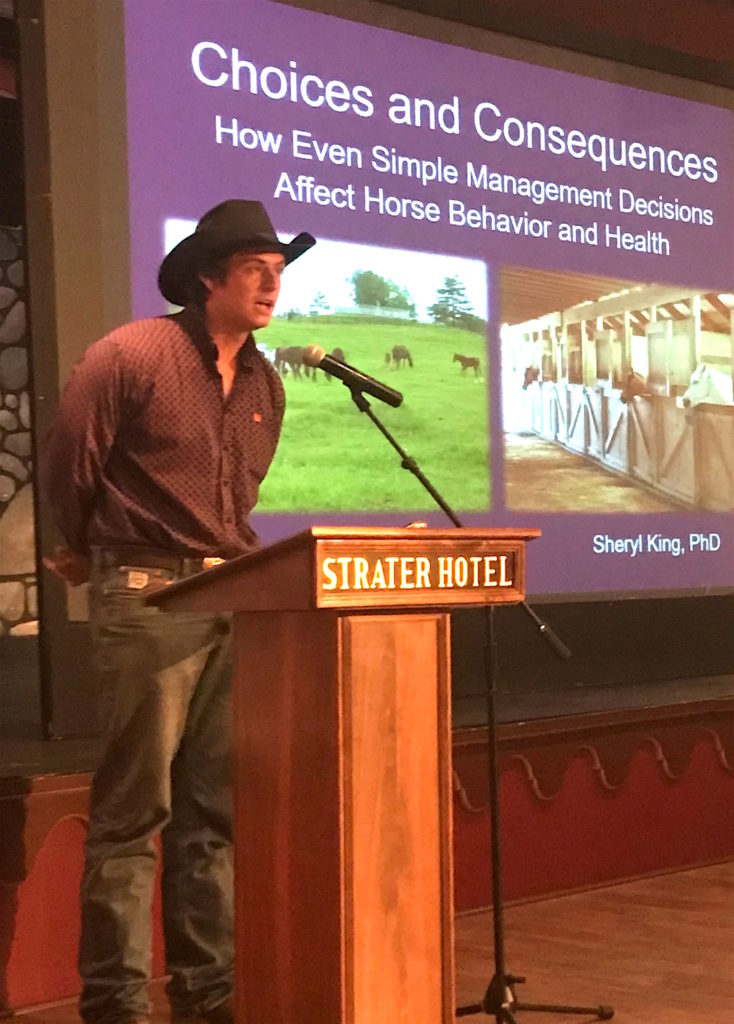
Holcomb introduces Dr. Sheryl King at the BHPS.
Fred Holcomb is a horseman, BHPS steering committee member, and farrier. He completed equine research at a Wyoming ranch and Davidson College, has mentored with experts in Washington, and is readying his entry into veterinary school
In this guest column, he reflects on his shifting awareness of what he does and does not know. He considers elements we heard about from Randy Rieman.
Read more about his research here.
Watch the BHP Summit introductory video here.
By Fred Holcomb
My greatest fear as an equine professional is talking the talk without walking the walk. In 2015, I graduated from a top liberal arts college with honors and a thesis worthy of publication. My graduation cap was feeling pretty snug. But the hours spent at a computer had taken a toll and I was ready to get out in the ‘real world.’ I was anticipating an eventual return to academia, but for the time being I was 22, single, and wanted to be horseback.
So, I headed west. I had spent summers working on dude ranches, could rope enough to get myself in trouble, and had muddled my way through starting a few colts. This was my chance to spend concentrated time to improve my horse work and to get hours in the saddle that I hadn’t gotten while imaging rat brains in a windowless basement lab.
After graduation, I lucked into two significant and positive experiences:
First, I connected with a farrier and horse trainer in Washington who happened to be married to a veterinarian. I ended up living with this perfect pair of mentors and their young family for three years. My days were filled with shoeing, riding colts and client horses, team roping, going on large animal calls, and bugging everybody with endless questions. I loved my time
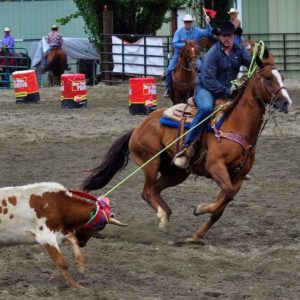
Holcomb tries his hand at competitive roping
with them and consider them family.
Secondly, a revelation hit me shortly after moving in with this adopted family: I felt like an idiot. It wasn’t that my friends out in Washington weren’t incredibly patient and supportive. They were. But more than at any other time in my life, I was feeling exceptionally incapable. I had gone to great schools, worked hard, and even won awards! But nothing is more humbling than lack of experience. My diploma wasn’t going to back the trailer into that tight spot, get that sour Appy horse to lift its foot, or get the #$!%ing steers back in after someone (me) had left the gate unlatched.
Despite riding since I was young and spending the last nine summers in Wyoming (Hello? The Cowboy State) I didn’t have a true understanding of collection, lightness, or effort. I couldn’t even lope a proper circle. My ego came crashing back to earth (literally at times).
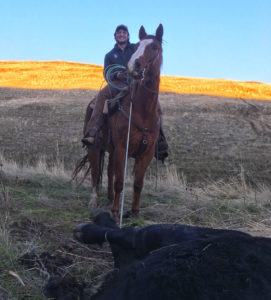
Out on the range, Holcomb ropes a cow for doctoring.
I hadn’t realized the enormity of what I didn’t know.
But things got better. Riding got less exasperating, shoeing got less effortful, and driving a trailer became less of a threat to public safety. I was starting to be more aware. But what was so shocking for Nerdy Me was that never in my life had I realized the depth of my ignorance and yet I loved this new position. I realized that I’d only been scratching the surface of this animal that I had so identified by. I had been oblivious to the monstrous iceberg of things I didn’t know.
My absolute knowledge and abilities were increasing dramatically but still paled in relation to the newly acknowledged sphere of things I didn’t know or couldn’t yet do. And that was intoxicating.
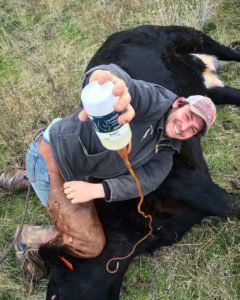
Holcomb treats a cow intravenously for grass tetany
Every day, I was seeing and doing things that I wouldn’t or couldn’t see or do the previous day. I started to see hoof and skeletal conformation, pedigree, body condition, lameness, and attention. Under saddle I began to feel shoulders, ribs, hips, feet, and effort.
You can’t fill the gaps until you see the gaps.
The journey compelled me to go to shoeing school in Montana and now I’m aiming for veterinary school. While frustrating at times, hammering away both in the classroom and at the barn has helped me begin to see the gaps. Now, at age 25, I know I haven’t figured it all out and I still may assert myself without realizing I am not seeing the rest of the iceberg.
Horse work is a lifelong process. My experience thus far has highlighted the important yin–yang of experience and bookwork, of application and theory. Neither is fully effective without the other. Just because you can tell someone how to do it doesn’t mean you can do it. Just because you’ve read how to do it doesn’t mean you can feel how to do it. Just because you got it done doesn’t mean you did it right.
There are a million and one books on how you’re “supposed” to interact with your horse. Only you will be able to decide what works best for you. I hope other horse owners will join me in learning from experience and discovering what they don’t know. No matter where this path takes me, I will strive to root my work in real-world function and intellectual inquisitiveness. These days, friends tell me that my hands are filthy all of the time. To them I say: “Thanks for noticing, I’ve been learning.”
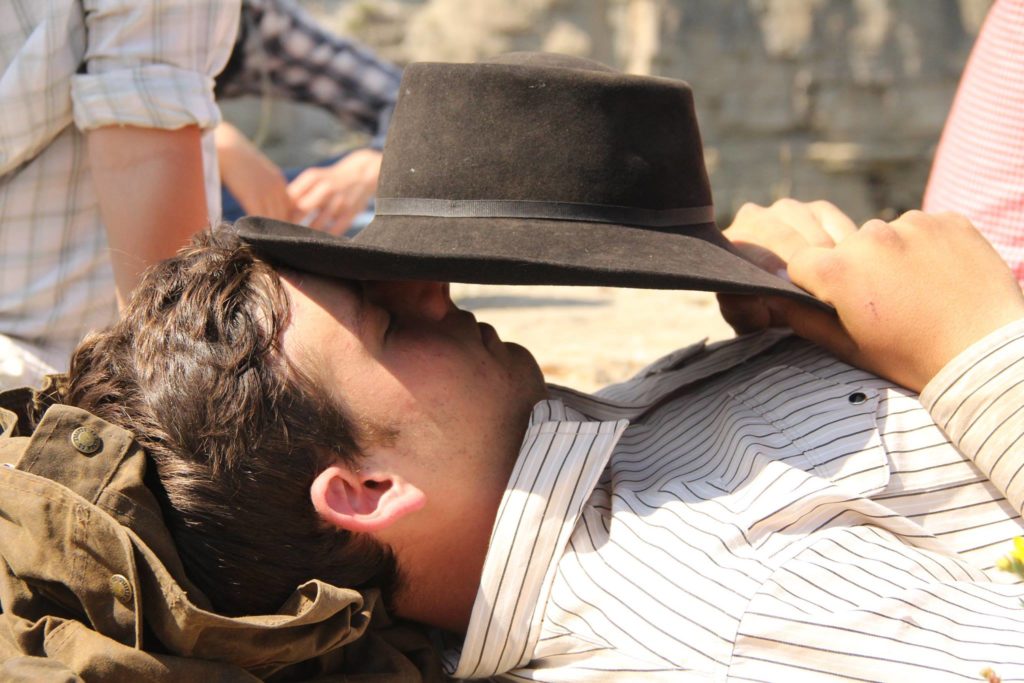
A moment of rest for the busy Holcomb